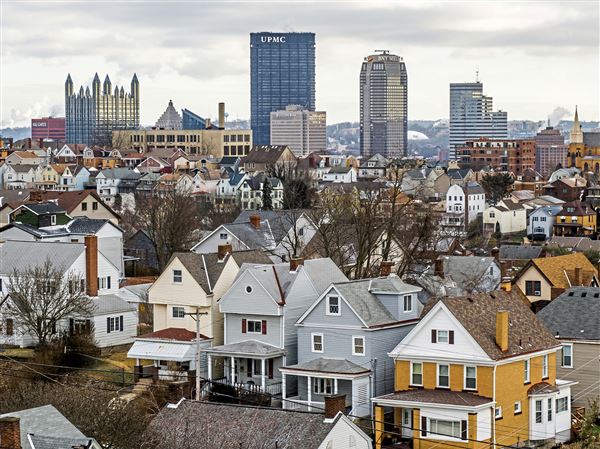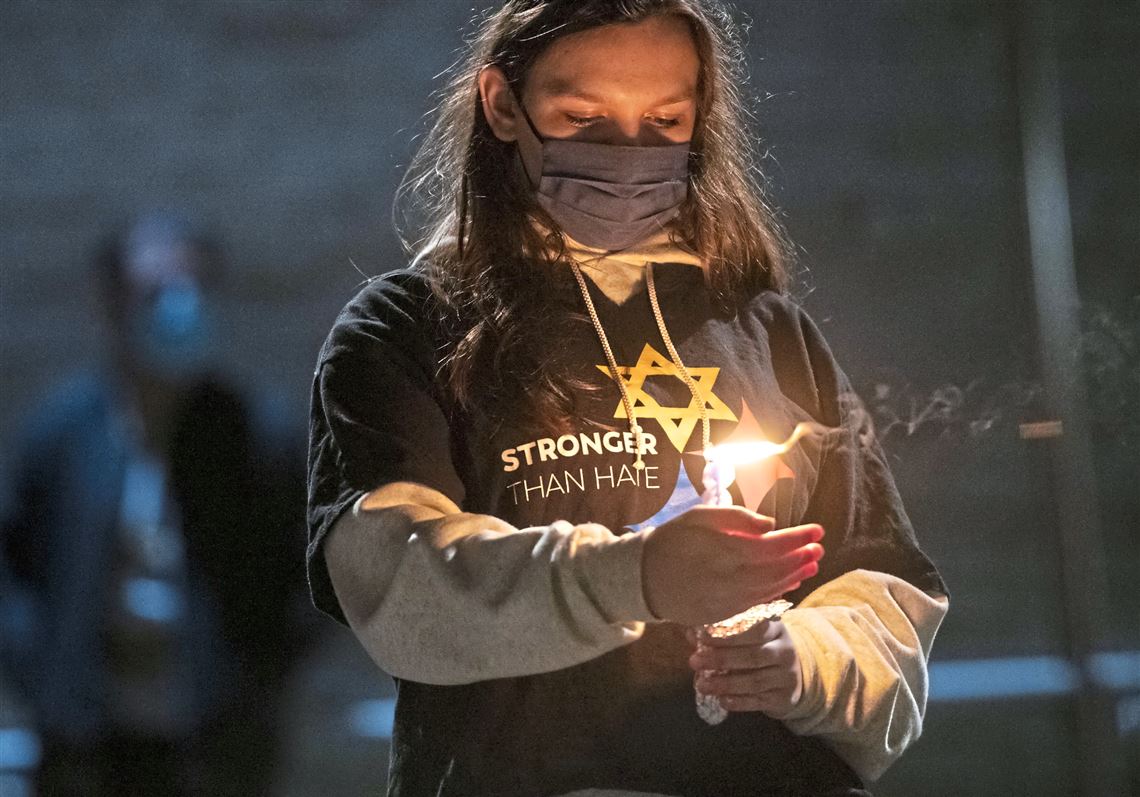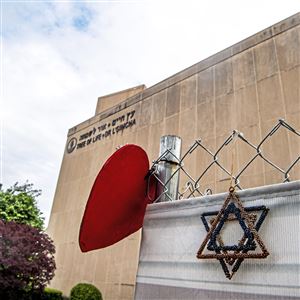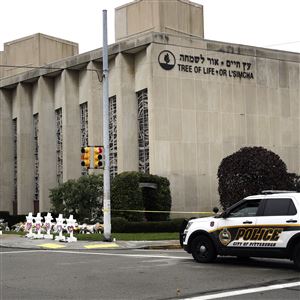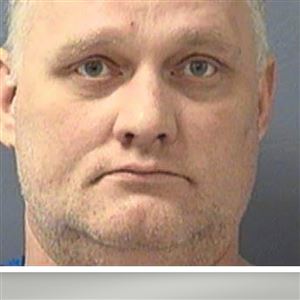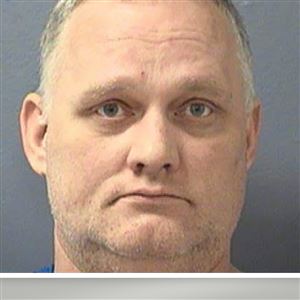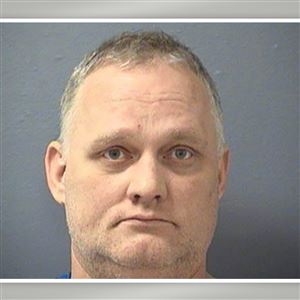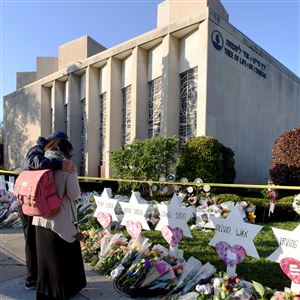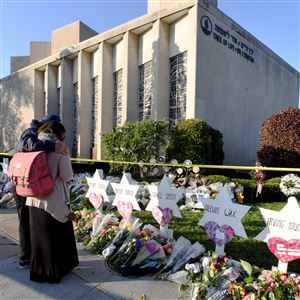Three years after the federal government charged Robert Bowers with massacring 11 Jewish worshippers at the Tree of Life synagogue, the case drags on.
The government keeps pushing for a trial date and insisting on the death penalty.
The defense wants a plea deal and has filed numerous motions to suppress statements, examine physical evidence, challenge jury selection procedures and ask for delays because of COVID-19 restrictions.
The number of docket entries stood at 626 as of Friday, and the back-and-forth bickering has at times approached absurdity.
At one point, the defense objected to FBI agents wearing their guns during an evidence review — inside one of the bureau’s own buildings.
Most recently, U.S. District Judge Donetta Ambrose extended the pretrial motions deadline for another 90 days, until Jan. 18.
The U.S. attorney’s office said it did not object to the latest delay, “given anticipated defense filings related to mental health and defense challenges to the Western District of Pennsylvania jury plan and venue.”
But prosecutors said the defense should be prepared to file all remaining motions by that date so more extensions shouldn’t be necessary.
“The United States remains committed to upholding the statutory right of crime victims and urges the court to consider the rights of crime victims to proceedings ‘free from unreasonable delay,’ ” the prosecution said.
The latest courtroom action occurred Oct. 12 and 13, when Judge Ambrose heard two days of testimony from police in a suppression hearing. The defense is trying to convince the judge to throw out antisemitic statements that police say Mr. Bowers made during and after a shootout with the city SWAT team inside the synagogue.
The judge gave both parties 30 days to file briefs on the issue after receiving a transcript.
The backdrop to this case is the Biden administration’s stance on the death penalty, which is muddled by another high-profile prosecution.
While Mr. Biden has said he opposes the death penalty and U.S. Attorney General Merrick Garland imposed a moratorium on it in June, the Justice Department is still trying to execute Boston Marathon bomber Dzhokhar Tsarnaev.
In 2020, an appeals court upheld Tsarnaev’s conviction but overturned his death sentence.
The Justice Department initially appealed under the Trump administration, which executed a record 13 federal prisoners. The new administration chose to continue the appeal, despite Mr. Biden’s stated opposition to capital punishment.
The U.S. Supreme Court heard arguments earlier this month and, according to numerous media accounts, appeared to be favoring reinstating the death sentence.
It’s not clear how that case may impact the Bowers prosecution, but his defense team is not alone in holding out for a plea deal.
Congregation Dor Hadash, one of the three groups of worshippers at Tree of Life, opposes the death penalty and in June sent a letter to Mr. Garland, asking him to let Mr. Bowers plead and spend his life in prison.
Meanwhile, the parties continue to spar over almost every issue.
Over the months, the sides have gotten under each other’s skin, with the prosecution accusing the defense of delaying the case repeatedly and the defense accusing the prosecution of heavy-handed tactics.
The defense lawyers — public defenders Michael Novara and Elisa Long and California anti-death penalty lawyer Judy Clarke — lost the most noteworthy battle last year when Judge Ambrose rejected their challenge to the federal death penalty. They said it violates the Constitution, but in April 2020, the judge said it does not.
Since then, the lawyers have argued repeatedly with prosecutors Soo Song, Troy Rivetti and Julia Gegenheimer over numerous issues, some of them bordering on inane.
During a debate last year about access to the physical evidence — most of it gun-related — at an off-site FBI building, the defense was upset at the fact that agents were wearing their guns. (FBI agents are required to carry guns on duty.)
“Defense counsel were apparently jarred by observing holstered weapons carried by FBI agents on FBI premises, even as the majority of evidence items consisted of firearms, casings, bullet fragments, or other firearms-related items,” prosecutors wrote. “FBI special agents are required to carry their weapons while conducting official business on FBI premises and, indeed, are encouraged to be armed at all times.”
The defense team also was angered at having to go through FBI security screenings to get inside.
The prosecution noted, however, that all visitors to FBI buildings have to go through the same screening and said even federal judges are screened “without complaint.”
“Indeed, as this court well knows, to enter this federal courthouse, individuals are required to produce identification and surrender their cellular telephones or recording devices,” the prosecutors said. “These are reasonable security measures, and it is not the defendant’s prerogative to dictate when and how the FBI’s standard security measures should be altered.”
The court case is filled with similar debates about evidence, access and deadlines.
At the end of the suppression hearing on Oct. 13, Judge Ambrose addressed the constant animosity.
After extending the deadline for pretrial motions again, she told the parties that instead of squabbling back and forth in court filings about procedural issues, they could always just try talking to each other.
In the gallery, the audience chuckled.
Torsten Ove: tove@post-gazette.com.
First Published: October 25, 2021, 10:00 a.m.
Updated: October 25, 2021, 10:12 a.m.


